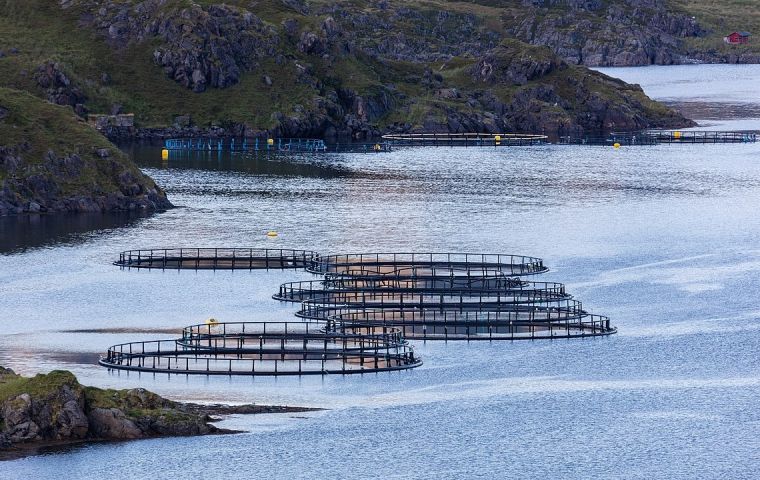MercoPress. South Atlantic News Agency
Magallanes Salmon Association: Tierra del Fuego's decision will have no repercussions for Chilean aquaculture
 Odebret recalled that the world demand for salmon increases at a 5 to 7% rate annually.
Odebret recalled that the world demand for salmon increases at a 5 to 7% rate annually. Magallanes Region Salmon Breeders Association Carlos Odebret downplayed the repercussions for the Chilean aquaculture industry of the recent Argentine legislation banning salmon farms in Tierra del Fuego, adding that the industry in Chile has a thirty-year experience and situations are not comparable.
“Currently there is no salmon breeding at the Beagle canal, neither on the Argentine or Chilean side, but mind you it is a legislation that was passed by the Argentine province”, Odebret said adding that the bill was the result of an intense campaign from NGOs, such as Greenpeace in the last three years both in Argentina and Chile.
Anyhow, remember Chile “has more than a hundred years since the introduction of salmon, 35 years since Chile installed aquaculture in the south of the country and the last thirty its has developed an institutional framework for the industry and has strengthened it in the last ten years. Meantime in Argentina, there is no salmon industry on a large scale or anything like the solid institution framework, like we have.”
Asked how the neighbouring Tierra del Fuego legislative council can impact, negatively or positively, the industry in Magallanes, Odebret recalled that the world demand for salmon increases at a 5 to 7% rate annually. It is anticipated that by 2050, with a nine billion global population, the demand for protein will soar and fisheries are at the limit of exploitation.
“Salmon farming is the way to feed those growing billions without impacting on the biomass. The US, China, Japan are pushing for the development of the salmon industry with new technologies for the ocean pens, or on land, which means that they value salmon breeding as an opportunity and not as a threat.”
”Chile has a long trajectory in the industry which gives us a great advantage. We know how to breed salmon, we have the technology, we've learnt from our mistakes and we have been able to create rules, licensing certifications. But I think Argentina is going against the opportunities that this industry offers. Regarding Chile, I trust that after so many years of efforts to improve and advance, we are not going to turn back, since it is an activity that generates opportunities for many people, entrepreneurs, women, immigrants, underlined Odebret.
Finally, the president of the Magallanes Salmon Association said that salmon is the main export product of the region (Magallanes), and second of the country, taking into account the 3,500 families linked to the activity directly in Magallanes, and generating work in zones away from the urban centres.
“I think we are a mature country that when something is not working, we fix it and draft rules to improve it. I'm not a friend of binary solutions, things are not white or black as some art trying to install through publicity campaigns, ” concluded Odebret.




Top Comments
Disclaimer & comment rulesCommenting for this story is now closed.
If you have a Facebook account, become a fan and comment on our Facebook Page!